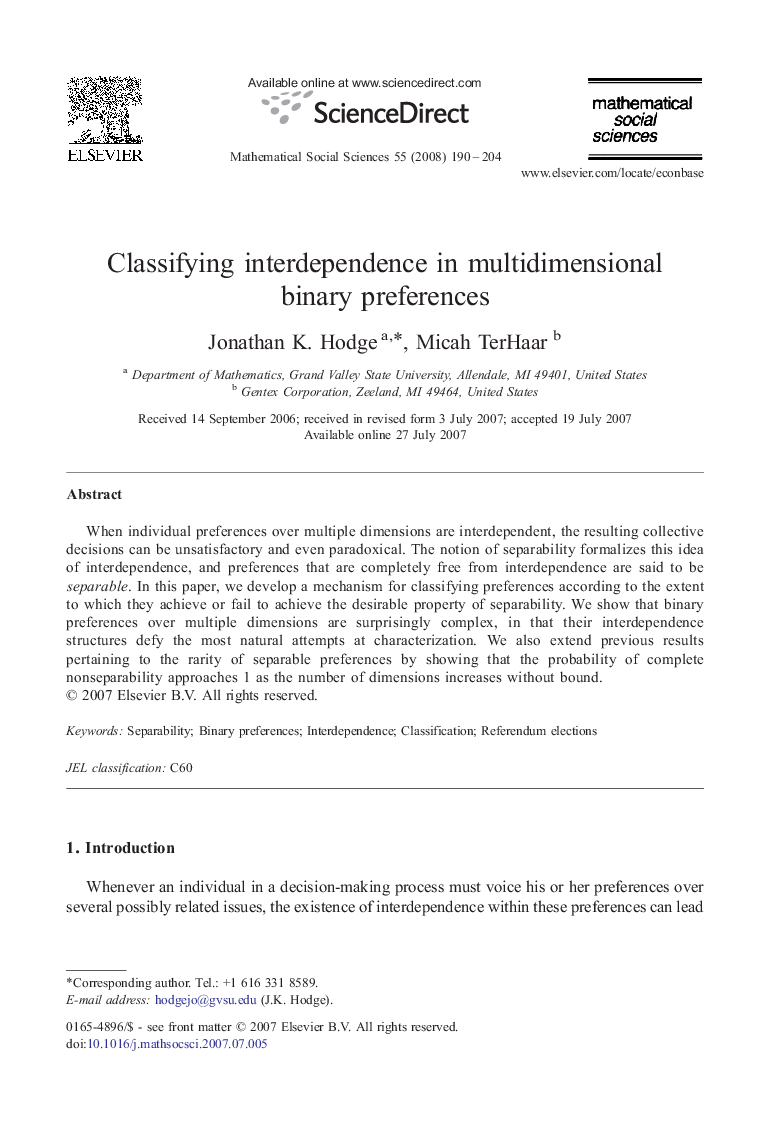| Article ID | Journal | Published Year | Pages | File Type |
|---|---|---|---|---|
| 972121 | Mathematical Social Sciences | 2008 | 15 Pages |
Abstract
When individual preferences over multiple dimensions are interdependent, the resulting collective decisions can be unsatisfactory and even paradoxical. The notion of separability formalizes this idea of interdependence, and preferences that are completely free from interdependence are said to be separable. In this paper, we develop a mechanism for classifying preferences according to the extent to which they achieve or fail to achieve the desirable property of separability. We show that binary preferences over multiple dimensions are surprisingly complex, in that their interdependence structures defy the most natural attempts at characterization. We also extend previous results pertaining to the rarity of separable preferences by showing that the probability of complete nonseparability approaches 1 as the number of dimensions increases without bound.
Related Topics
Physical Sciences and Engineering
Mathematics
Applied Mathematics
Authors
Jonathan K. Hodge, Micah TerHaar,
